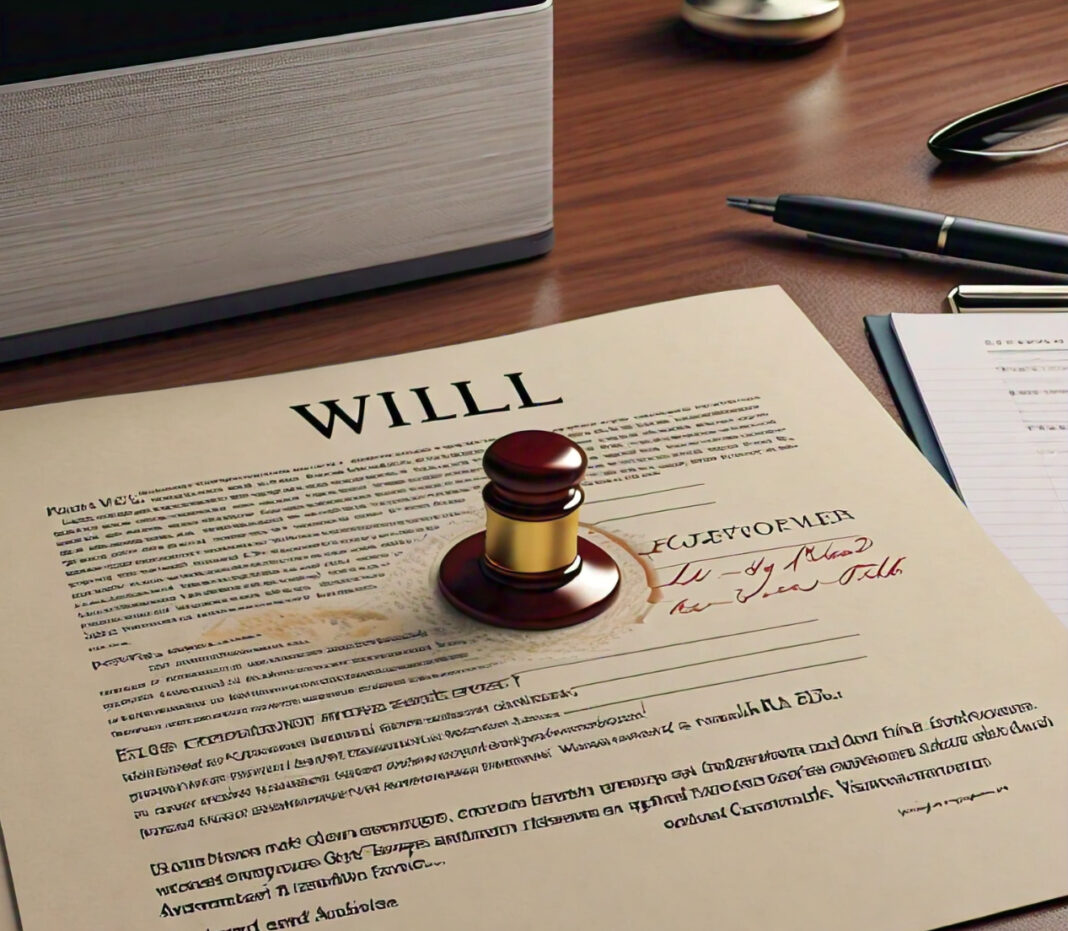Among the important processes to be concerned with, everyone has to embark on estate planning, whether one has just begun earning a few bucks or has made millions in their lifetime. It addresses how assets owned by an individual are to be distributed in tandem with his/her wishes for the loving family and loved ones in the event of the death of its owner.

Besides, estate planning is not half as daunting if tackled one step at a time. The article will explain in detail the seven steps that are considered significant for estate planning and give you an outline that will help you legally ensure your legacy and protection for your family’s future.
Step 1: Take Stock of Your Assets and Liabilities
The first and foremost step in estate planning involves incorporating a proper perspective on the financial status of an individual. In other words, this is the step wherein one accounts for everything that he or she owns and owes.
Identifying Your Assets
To begin with, write down in detail everything that counts as an asset. This may include but is not limited to:
Real estate: your primary residence, vacation homes, rental property
Vehicles: cars, boats, and motorcycles
Bank accounts: checking accounts; savings accounts and certificates of deposit
Investment accounts: stocks; bonds and mutual funds
Retirement accounts: 401(k)s; IRAs
Life insurance
Valuable personal property: jewelry; art and antiques
Business interests
And finally, do not forget about digital assets, such as online accounts, cryptocurrencies, and valuable domain names.
Getting a Handle on Your Liabilities
Next, name all of your debts and financial obligations:
Mortgages
Car loans
Credit card balances
Personal loans
Student loans
Tax obligations
I am knowing explicitly what assets you have and what liabilities you have will enable you to make informed decisions about how you want to distribute the estate and, where possible, how to minimize potential tax implications.
Step 2: Identify Your Estate Planning Goals
With a clear picture of your financial situation, it is time to reflect on what you want to achieve with your estate plan. Different people have different objectives, but some of the common goals most people look to achieve are:
Providing for Your Family
Think about how you might want to keep taking care of your spouse, children, or other dependents beyond when you’re no longer around. For some that will be trusts for the care of minor children, or even less specifically steps to make sure your spouse is adequately resourced to maintain their lifestyle.
Minimizing Taxes
While not everyone’s estate will be subject to the estate tax, it is a good idea to think about how your estate may be able to minimize potential tax liability for your survivors.
Giving to Charity
If you have favorite charities, you may wish to include one or more in your estate plan.
Avoiding Fighting Among Heirs
Give some careful consideration to how you wish to apportion your estate so that heirs aren’t fighting with each other over your estate.
Protecting Assets
You may also want to protect those assets from creditors or have them used wisely by beneficiaries.
Plan for Incapacity
Consider who you’d want to manage your financial and medical decisions if you can’t.
By understanding these objectives, you will be in a better position to collaborate with your estate planning team of professionals to create an estate plan that most accurately reflects your goals and wishes.
Step 3: Create Your Estate Planning Team
Estate planning can involve multiple disciplines. Of course, you can hire various professionals as necessary so that your plan is solid, comprehensive, and legal.
Estate Planning Attorney
An experienced attorney dealing in estate planning will be able to perform the following:
Draft documents legally valid in the form of wills, trusts, powers of attorneys
Advise on complex estate planning strategies
Ensure your plan is compliant with state and federal laws
Financial Advisor
This person can help you analyze your current financial situation, predict how much money you will need later, and offer advice on asset protection and distribution.
Accountant or Tax Professional
The tax consequence is an important criterion involved in the process of estate planning. He/she can:
- Advise how to effectively transfer wealth in a tax manner
- Help in trying to minimize one’s estate and gift tax burden
- Make sure one’s plan is updated to comply with changing tax laws
Insurance Professional
The insurance professional can:
- Evaluate your current life insurance coverage
- Propose an additional measure of protection
- Describe how life insurance may be used in estate planning
Trust Officer
If you wish to set up trusts, a trust officer can:
- Explain the various types of trusts and their applications
- Assist you with the management of assets within the trust
- Ensure that the trust is managed in the way you have provided
Remember, your team will vary depending on the complexity of your estate and your goals. Some people will only need an attorney, while others will want all of the above professionals on their team.
Step 4: Create Your Estate Planning Documents
Having identified your goals and put your team together, you are ready to begin the legal documents that form the core of your estate plan. Some of the ones you are most likely to need appear below. Note the many purposes they serve.
Last Will
Will is a binding agreement that stipulates who to take over your property at your death. The last will further allow you to do the following:
Appointment of an executor to manage your estate
Naming guardians for your young children
Directing your funeral
Trusts
Trusts can be among one of the best methods through which you may successfully implement estate planning and have the following advantages:
Probate avoidance
Management of assets even after your death
Protection of assets from creditors
Reducing estate taxes
The most common types of trusts include the following:
Revocable living trusts
Irrevocable trusts
Charitable trusts
Special needs trusts
Power of Attorney
This form allows you to name someone to make medical decisions for you if you cannot do so yourself. There are two kinds of health care powers of attorney: A durable health care power of attorney, which takes effect immediately and remains in effect when you are unable to make decisions, and a springing health care power of attorney, which becomes effective upon the incapacity of a person.
Living Will
Living Will This document states your wishes as to treatment decisions to be made for you in the event you are no longer able to communicate your wishes. Generally included are:
Life-sustaining treatment preferences
Pain management directives
Organ donation preferences
HIPAA Authorization
This document allows your named representatives access to your medical information, information that may be required to make appropriate health care decisions on your behalf.
Beneficiary Designations
Check and update beneficiary beneficiary designation for the following:
Life insurance
Retirement accounts
Transfer-on-death accounts
Generally, these designations control the instructions in your will, so make sure those are current.
These documents, through a lawyer, shall be written and accomplished to serve as a tool to ensure that they indeed represent your will and conform with all requirements in the aforementioned law.
Review and Update Your Plan Regularly
Estate planning is not an event – life changes, the laws change, and so may your wishes over time. Reviewing and updating your estate plan from time to time would be a prudent thing so that it continues to align with your goals and current circumstances.
When to Review Your Plan
It is recommended to revise your plan yearly; however, some events in your life are reasons you should go through it right away:
- Marriage and divorce
- Birth or adoption of a child
- Death of spouse or beneficiary
- Major change in financial status owing to an inheritance, sale of a business, and so on.
- Moving to another state
- Changes in the tax laws
What to Review
Have the following come into view during your review:
- Asset inventory: Has your net worth changed significantly? Have major assets been acquired or sold?
- Beneficiaries: Should your beneficiary designations still be the same as they are today?
- Executor and trustees: Are those you named capable and willing to assume these key positions?
- Guardians: If you have minor children, are those you have identified to serve as guardians still appropriate?
- Healthcare directives: Have your desires concerning medical treatment changed?
- Insurance: Does your life insurance adequately provide for the needs of your family?
- Tax laws: Have estate tax laws changed that may influence your plan?
Making Changes
If you do decide that you need to make some changes to your estate plan, work with your attorney to have the changes made properly. Some changes will require new documents, but others may be completed by way of an amendment or codicil.
Remember, an outdated estate plan is just about as good as no plan at all. Regular reviews help ensure your plan will continue to protect your assets and provide for your loved ones in the way you want.
Step 6: Communicate Your Plan with Your Family
Although estate planning is personal and, more often than not, sensitive in nature, you need to share your plans with your family. This open communication will help avoid misunderstandings and will help in reducing potential conflicts while your wishes are recognized and acted upon.
Benefits of Family Communication
- Clarity: Explain to family members why certain decisions have been taken so that they understand your rationale and motives.
- No conflict: Open communication will minimize the possibility of conflict in case you are no longer around.
- Preparedness: It will make your family better prepared for their roles and responsibilities.
- Feedback: The family members may bring up certain aspects or even raise some issues that you might not have given thought to.
What to Discuss
There is no requirement to disclose every last private detail of your estate plan, although I would suggest considering the discussion of the following:
- Summary of Your Plan: Provide a general summary or outline of how you have structured your estate plan.
- Who is in charge: Whom you have named, if anyone, as executors, trustees, guardians—is that person or those people aware that you’ve chosen them as such in the estate plan?
- Location of documents: The location of important documents is shared with key family members.
- Your values and wishes: A discussion of the values that guided your decisions.
- Healthcare wishes: A conversation about desires for medical treatment and care at the end of life.
How to Tell Them
Choose what works best given your family dynamics:
- Family meeting: Everyone is brought together in a formal discussion.
- Individual conversations: If it feels more comfortable, you need to speak with family members one-on-one.
- In writing: Maybe you want to write a letter explaining the decisions that have been taken.
Remember that this is a process of education and consensus, not debate or defense of the decisions you reach. Be prepared for potential emotional responses, and if you think it might be constructive-include your estate planning attorney in the process if challenging discussions are likely.
Step 7: Implement and Update Your Plan
The final stage in the estate planning process includes the implementation of your plan and periodic updating.
Carrying Out
- Sign documents: All legal documents should be signed in the presence of the requisite number of witnesses with a notary public present.
- Fund trusts: In case you have set up trusts, fund the same properly by transferring the assets to it.
- Update beneficiary designations: Update the beneficiaries of life insurance policies and retirement accounts or other assets by your estate plan.
- File documents: Store your estate planning documents in a safe location and inform your executor where the documents are.
- Asset list: Make an asset list with account numbers and log-on information for those assets that are online.
- Digital asset protection: Make provision for the protection and access of your digital assets for the benefit of elected representatives.
Estate planning is an ongoing process. To have an effective estate plan: - Reminder: Estate plans are revisited from time to time.
- Be Informed: Keep abreast of all estate planning law changes that may impact your plan.
- Convey Change in Information: If, for whatever reason, there is a change in the plans, then such change needs to be conveyed to the concerned family or professionals.
- Review Insurance Needs: Keep a periodic review of your life insurance to ensure that your coverage is adequate for your family’s needs.
- Update of Asset Inventory: Keep current on updating your list of assets regarding major assets bought and sold.
The estate plan serves its purpose of protecting of your assets and taking care of loved ones as you see fit through vigorous implementation and follow-up. This keeps you able in that regard.
Conclusion
Estate planning is a very significant process that helps protect your assets, provide for your loved ones, and even leave behind a lasting legacy. The estate planning process generally is summarized into seven steps: the process of stock-taking about one’s assets and liabilities, identification of goals, selecting the team, preparation of the documents necessary for the review and updating of the same, family communication, implementation, and monitoring of your plan. This would yield a comprehensive estate plan that would keep you comfortable.
Estate planning is not an event; it is a process. Circumstances change, the law changes, and maybe the goals change. Periodic reviews and updates are needed if one is to keep the plan current and work toward one’s goals.
This is likely a daunting process, but it is good to work with professionals who make the journey as smooth as possible and the plan legally sound and tax-efficient. In this regard, procrastination over estate planning would be unwise. This likely helps one avoid making loved ones go through unnecessary stress and even a potential conflict afterward.
Estate planning means taking control and charting the course of one’s legacy, articulating one’s values, and providing for those people and causes that mean the most. It is one of the most meaningful gifts you can give to the people you love as well as yourself.






